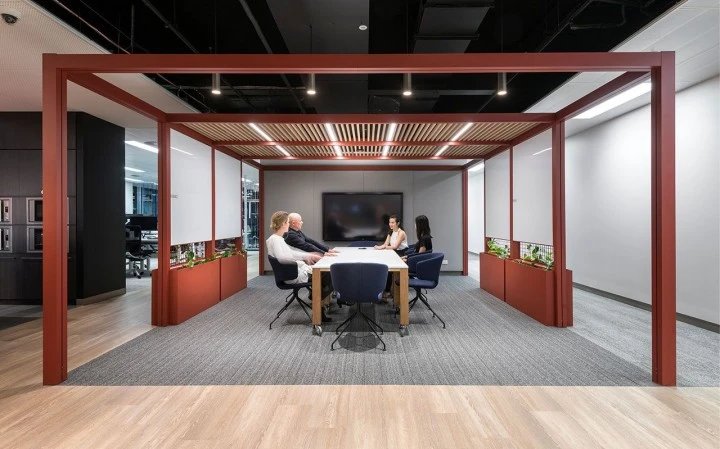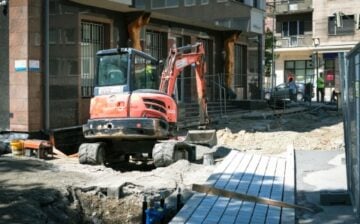
In the current business climate, efficiency and cost-effectiveness are key to maintaining a competitive edge. This extends to the very infrastructure of a business – the office space. Modular offices have emerged as a solution that promises efficiency, adaptability, and cost-effectiveness. This article explores the various aspects that make modular offices a financially viable option for businesses.
Understanding Modular Offices
Modular offices involve the construction of office spaces using pre-fabricated modules. These modules are manufactured in a factory setting and then transported to the site for assembly. This method differs significantly from traditional construction and brings with it a set of unique financial benefits.
Reduced Construction Costs
Speed of Construction
One of modular offices’ most significant cost-saving aspects is the reduced construction time. These buildings are constructed off-site, allowing for faster completion as the process is not subject to delays that often plague traditional construction, such as bad weather. A shorter construction timeline results in lower labour costs and quicker occupancy, which is particularly beneficial for businesses looking to expand rapidly.
Efficiency in Material Use
In a controlled factory environment, materials are more efficiently used, and waste is significantly reduced. This efficiency not only saves on the cost of materials but also aligns with sustainable practices, potentially qualifying businesses for green incentives or tax benefits.
Lower Operational Costs
Energy Efficiency
Modular offices are often more energy-efficient than traditional buildings. They are designed with modern insulation techniques and materials, lowering heating and cooling costs. Additionally, they can be easily equipped with eco-friendly features like solar panels, further reducing energy costs in the long run.
Maintenance
The materials used in modular construction are typically durable and low-maintenance, resulting in lower ongoing maintenance costs. The ability to replace or repair individual modules also adds to the cost-effectiveness, as it avoids the need for extensive renovations.
Flexibility and Scalability
Adaptability to Business Needs
The modular design allows for easy expansion or reconfiguration, catering to the changing needs of a business. This flexibility can be a cost-saver for growing companies that might need to invest in new premises. Modular offices can adapt to the company’s size and needs without the significant expenses associated with traditional construction or moving to a new location.
Resale and Reusability
Modular buildings can be dismantled and either sold or repurposed for different uses, which adds an element of cost recovery that is not typically possible with traditional buildings. This aspect is particularly appealing for businesses that may have short-term space needs.
Upfront Investment vs. Long-Term Savings
While the initial investment in a modular office may be similar to or slightly higher than traditional construction, the long-term savings on construction time, operational costs, and flexibility often result in a more cost-effective solution.
Case Studies: Success Stories
Numerous businesses have transitioned to modular offices and have reported significant cost savings. For instance, a tech startup was able to reduce its construction timeline by several months, allowing it to launch operations and generate revenue much sooner than anticipated. Another example is a school that expanded its premises with modular classrooms, finding it to be a more economical alternative to building new permanent structures.
Market Trends and Future Outlook
The market for modular construction is growing, with more businesses recognizing its cost benefits. The future looks promising, with advancements in technology and materials likely to make modular offices even more cost-effective and environmentally friendly.
Modular offices represent a cost-effective solution for businesses in many industries. Their efficiency in construction and use of materials, energy savings, and operational cost reductions present a compelling financial case. When these factors are coupled with the flexibility and adaptability of modular structures, it becomes clear that they are not only a viable alternative to traditional office spaces but also a financially prudent choice for businesses looking to maximize their investment. As the business world continues to evolve, modular offices are likely to play an increasingly important role in the landscape of corporate infrastructure.
We hope you found this blog post on Are Modular Offices a Cost-Effective Solution for Businesses? useful. Be sure to check out our post on Modular Office Furniture Works Best when Moving Offices for more great tips!
Have Experience in the Moving Industry? Want an Additional Income Stream? Work With All Around Moving!
All Around Moving’s Work With Us program provides experienced moving consultants with the opportunity to run their own Relocation Consultant business from anywhere in the USA. In fact, we provide licensing, dedicated phone lines and email hosting. Likewise, moving software for lead tracking, invoicing, and complete set up.
We’ll even provide the carriers, or you can use your own. A nominal one-time start up fee gives you initial-customer-leads to get your business up and running. There are no recurring expenses, except purchasing your own leads. We share profits 50-50 with you from all jobs you book with us. Click here to learn more.





